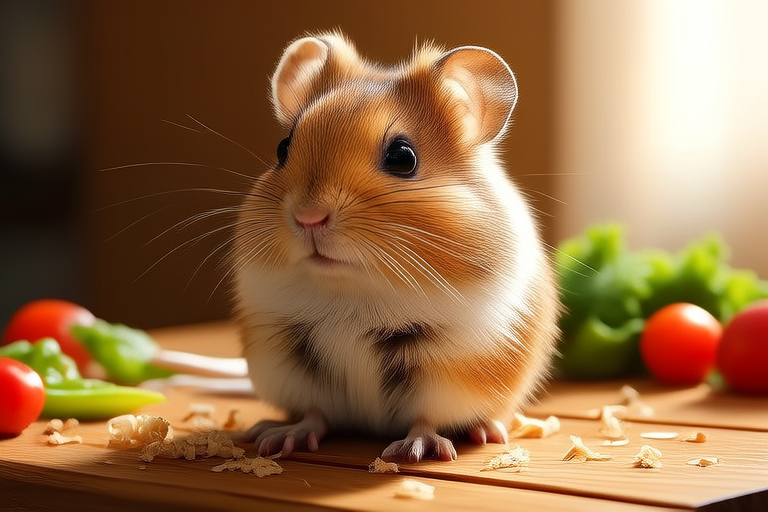5 Surprising Facts About Guinea Pigs You Need to Know
Guinea pigs, often seen as simple pets for children, have a rich history and a surprising number of unique characteristics that many owners might not be aware of. These small, gentle creatures are full of surprises, from their social behavior to their dietary needs. Whether you’re a seasoned guinea pig owner or just curious about these charming animals, there’s always more to learn. Here are five surprising facts about guinea pigs that will make you appreciate them even more.
1. Guinea Pigs Are Not From Guinea, Nor Are They Pigs
One of the most surprising things about guinea pigs is where they actually come from. Despite their name, guinea pigs are neither from Guinea nor related to pigs. They originate from the Andes Mountains in South America, specifically from countries like Peru, Bolivia, and Ecuador. The term ‘guinea’ might refer to the Guinea coast in Africa, where similar rodents were once sold, leading to confusion. As for the ‘pig’ part, it’s likely due to their squealing sounds which resemble those of pigs. This naming discrepancy highlights the importance of research when adopting any pet to ensure you understand its origins and care requirements.
2. They Have an Exceptional Sense of Smell
Guinea pigs have a keen sense of smell, which they rely on for navigation and communication. Their olfactory system is highly developed, allowing them to detect pheromones and other chemical signals from their environment and fellow guinea pigs. This heightened sense of smell plays a crucial role in their daily lives. For instance, guinea pigs can identify familiar humans through scent, which helps build trust. It’s fascinating to watch how they use their noses to explore new objects and areas within their living space. Understanding this can help owners create a more stimulating environment by introducing new scents and toys regularly.
3. Guinea Pigs Require Vitamin C Daily
Unlike most animals, guinea pigs cannot produce vitamin C on their own. This means they need to obtain it from their diet, making it essential for their health. A deficiency in vitamin C can lead to scurvy, causing symptoms such as lethargy, joint pain, and even death. To keep your guinea pig healthy, it’s important to include foods rich in vitamin C in their diet. Fresh fruits like strawberries, oranges, and bell peppers are excellent sources. However, feeding them too much citrus can cause digestive issues, so moderation is key. Providing a balanced diet ensures that your guinea pig stays active and healthy.
4. Social Creatures with Complex Communication
Contrary to popular belief, guinea pigs are highly social animals that thrive in the company of others. In the wild, they live in groups called herds, and in captivity, they benefit greatly from having a companion. They communicate through a variety of vocalizations, including purring, chirping, and even high-pitched squeals. Each sound has a specific meaning, whether it’s expressing happiness, fear, or distress. Observing these interactions can provide insight into your guinea pig’s emotional state and overall well-being. For example, a guinea pig might purr when it’s content, but chirp when it’s excited or wants attention. Understanding their language can strengthen the bond between you and your pet.
5. Unique Grooming Habits
Guinea pigs have a grooming routine that is both fascinating and functional. They spend a significant amount of time cleaning themselves and each other, a behavior known as allogrooming. This mutual grooming not only helps maintain cleanliness but also strengthens social bonds within the herd. Interestingly, guinea pigs are meticulous about their hygiene and can become stressed if their living environment is dirty. Owners should provide clean bedding and regular opportunities for their guinea pigs to groom themselves. Watching your guinea pig groom can be an endearing experience, offering a glimpse into their natural behaviors and social dynamics.
Conclusion: Embrace Responsible Guinea Pig Ownership
Guinea pigs are complex and fascinating animals with unique needs and behaviors. By learning more about their origins, dietary requirements, social nature, and grooming habits, you can better understand and care for these delightful pets. Whether you’re a first-time owner or a long-term enthusiast, there’s always more to discover about guinea pigs. To ensure your guinea pig leads a happy and healthy life, continue educating yourself on best practices in guinea pig care. Consider joining local or online communities dedicated to guinea pig lovers, where you can share experiences and tips. By doing so, you’ll not only enrich your pet’s life but also contribute to a community of responsible and knowledgeable guinea pig owners.
